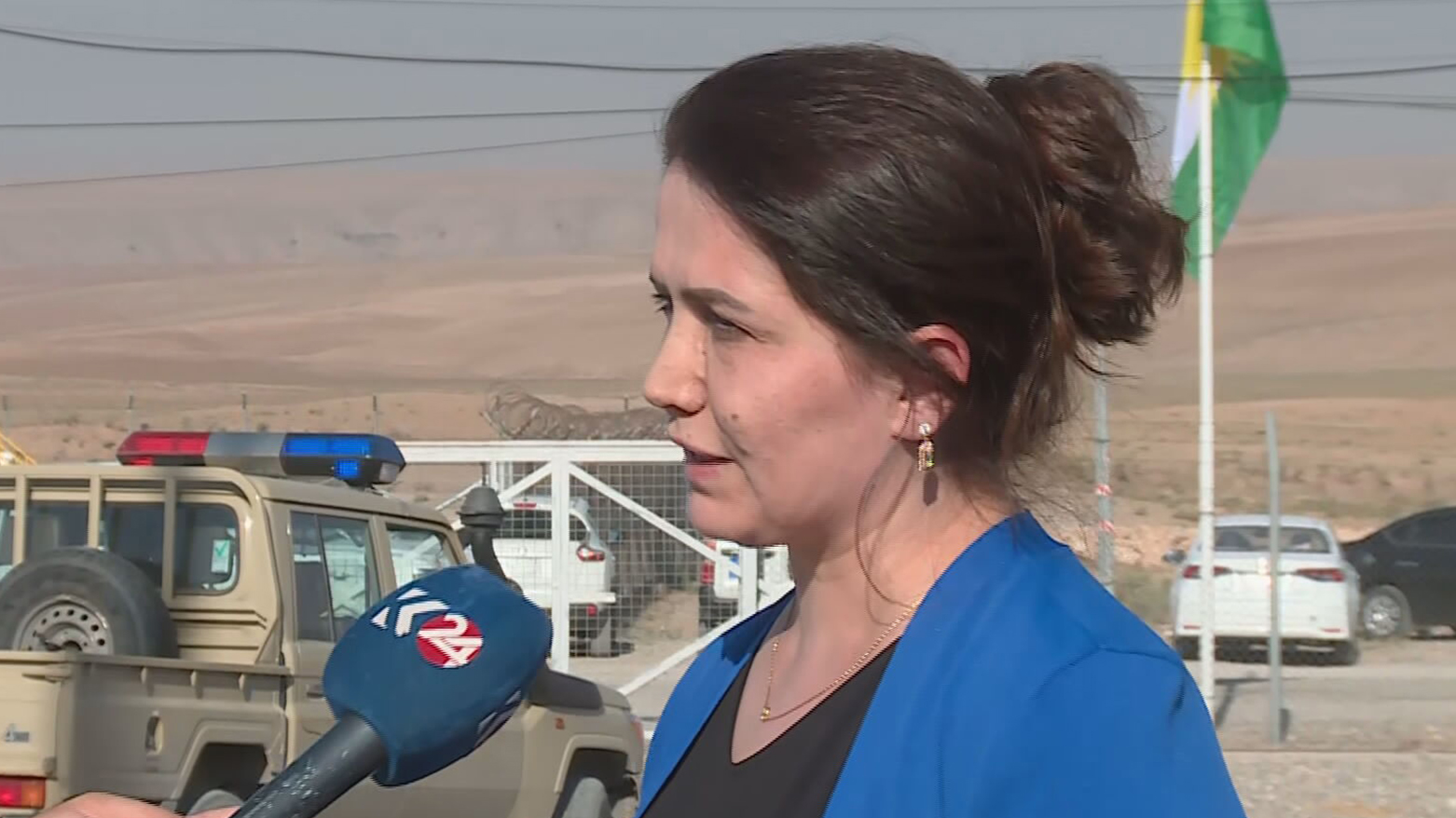Khazal Auzer: All Kurdistan Oil Fields Resume Exports to Global Markets
Kurdistan's oil exports have resumed, supplying 190,000 barrels daily to global markets, with significant volumes directed toward EU and American buyers. This provides Europe with a stable alternative to Russian energy and strengthens transatlantic energy security.

ERBIL (Kurdistan24) – Khazal Auzer, Director General of Contracts and Economic Affairs at the Kurdistan Regional Government’s (KRG) Ministry of Natural Resources, confirmed on Saturday that all oil fields in the Kurdistan Region have resumed exports to the Ceyhan terminal in Türkiye, following more than two and a half years of suspension.
Speaking to Kurdistan24, Auzer underscored the significance of this development, noting that the long halt in exports had heavily impacted local oil companies. “For nearly three years, Kurdish oil was blocked from reaching international markets, forcing local companies to sell at prices below global levels. That meant less money in their hands and weaker investment, which reduced production,” she said.
She explained that the resumption offers a vital chance for local firms to recover. “We hope domestic companies will now receive their entitlements, boost production, and reinvest in their fields. Raising output is beneficial not only for the Kurdistan Region but also for Iraq as a whole,” Auzer stated.
Auzer pointed out that the long stoppage created technical difficulties as well, since crude oil had not flowed through the pipeline for years. “Production naturally declined during this period, but now that exports have restarted, we are optimistic that fields will recover and output will gradually rise,” she said.
She further emphasized that financial certainty remains crucial. “Money is a fundamental condition for companies, because one of their essential responsibilities is to ensure funding for continued operations,” she explained. She stressed that the Ministry has introduced reforms to directly monitor oil companies’ activities, aiming to guarantee efficiency and accountability.
Auzer reaffirmed that the KRG will continue to allocate 50,000 barrels per day for domestic consumption in accordance with budget law, while the remainder will be exported to Ceyhan.
In an address that celebrated the Kurdistan Region's deep-rooted identity as a haven of religious freedom and cultural diversity, at the historic conference commemorating the 1700th anniversary of the Council of Nicaea., Prime Minister Barzani took a moment to highlight a significant achievement for the people of the Kurdistan Region and all of Iraq: the resumption of oil exports.
"I want to point here to an important point of a historical event that a few days ago, after a few, two or three years of a halt in the export of the Kurdistan Region's oil to foreign markets, once again today, this morning, the Kurdistan Region's oil was exported again to the world market," he announced.
He described the agreement with the federal government as a "great achievement for all the people of Iraq, especially the people of the Kurdistan Region," and commended all who played a role in its success.
He made a special point to "mention the role of the United States of America in particular, whether in Washington, or their ambassador in Baghdad, or their consul here in Erbil, who were truly great supporters for the success of this process."
He expressed his hope that the agreement would become "a reason for the advancement of the economic infrastructure and be in the service of all citizens."
At 6:50 a.m. on Saturday, crude once again flowed from the Peshkabour oil station toward Türkiye’s Mediterranean coast. Under the trilateral framework agreed between the KRG, the Iraqi Federal Oil Ministry, and international oil companies, the Kurdistan Region’s crude is transferred to Iraq’s state marketer SOMO, which manages sales on global markets.
Preparations at the Khurmala oil field ensured that crude from all eight producing fields in Kurdistan was funneled to Peshkabour before entering the Iraq–Türkiye pipeline. SOMO has contracted a major Swiss trading firm to market the oil, with shipments destined for Europe, North America, and additional international markets.
The current agreement, valid for three months, envisions daily production of 240,000 barrels, of which 190,000 are exported and 50,000 reserved for domestic use. For Iraq’s 2026 federal budget, export volumes will be recalibrated in line with Kurdistan’s production capacity.
Ali Nizar, Director General of SOMO, confirmed during a press conference that Kurdistan currently delivers around 240,000 barrels per day to SOMO, with 50,000 barrels retained for local consumption. He stressed that Kurdish oil is strategically important for Europe, particularly as an alternative to Russian crude, while also benefitting North and South American markets.
Under the interim framework, international oil companies operating in the Kurdistan Region will receive $16 per barrel to cover production and transportation costs, with payments processed through the U.S. Federal Reserve. Nizar emphasized that this agreement should not be viewed as temporary but as a foundation for sustained cooperation between Baghdad, Erbil, and international companies.
By returning its oil to international markets, the Kurdistan Region has not only restored a vital source of revenue but also reaffirmed its place as a reliable contributor to global energy diversification. Auzer concluded that despite the difficulties of recent years, the resumption signals renewed momentum for both the Region’s economy and its role in Iraq’s broader energy sector.